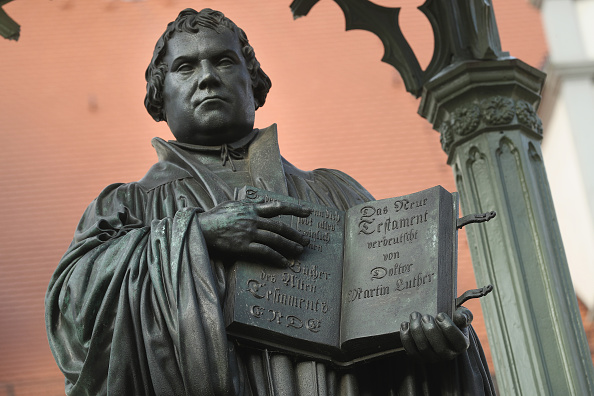Tax cuts could do for our economy today what the Reformation did 502 years ago

On this day in 1517, German monk Martin Luther nailed his 95 Theses to the door of All Saints’ church in Wittenberg.
In so doing, Luther set in motion a series of events which would have a dramatic impact on the political landscape of Europe, transform the economy, and alter the lives of ordinary people across the world.
Luther’s Theses contained a list of examples where he believed that the teaching and practices of the Catholic Church were contrary to the Bible. He argued that the Bible taught that forgiveness of sins and eternal life were obtained not by performing good works or at the say-so of a priest, but through faith in Jesus Christ.
The central tenet of the Reformation – that a person is justified by faith – produced an economic shift in sixteenth-century Europe.
For example, a 2017 study found that the Reformation led to a drop in the number of people training to be priests and a move towards degrees in law and the arts.
This makes perfect sense. If you believe that your soul will spend eternity in Hell if you don’t behave, it is wise to lock yourself away and devote yourself to prayer and good works. But if justification is a gift obtained through faith, you are freed up to do something more productive with your time.
This paradigm shift also impacted what ordinary people spent their money on. In Luther’s day it was common for people to buy indulgences from the Church. These “guaranteed” purchasers or their loved ones time off from Purgatory and a fast track to Heaven in exchange for money.
This was a good deal for the Church. Pope Leo X increased the use of indulgences in order to finance the rebuilding of St Peter’s Basilica, complete with the catchy marketing slogan: “as soon as a coin in the coffer rings, a soul from Purgatory springs”. But as a result of the Reformation, people’s beliefs evolved and they started spending their money on other things, such as food and drink (spurring the economy), or on educating their children (upskilling the workforce).
Liberated from external market distortions, people were free to earn and spend their money in the most productive ways. Economic growth boomed as a result.
This goes to show that what we believe matters – for politics, for the economy, and for society. It was true in the sixteenth century and, as our political parties gear up for an election campaign, it is true today. People work in order to provide for themselves and their families. When they are in control, they make more efficient decisions.
However, the high level of taxation in this country leads to the belief that people are working for the taxman, not for themselves. This results in people engaging in unproductive activity, such as working fewer hours or trying various methods to pay less tax.
The UK has been suffering years of stagnant productivity, and the tax code is part of the problem. Allowing people to keep more of their own money and spend it on what they value will go some way to tackling this productivity puzzle.
Half a millennium on from the start of the Reformation, our beliefs still shape what we do for a living and how we spend our money. Whoever triumphs in this election, they would do well to remember this, and give us all a tax cut.
Main image credit: Getty
